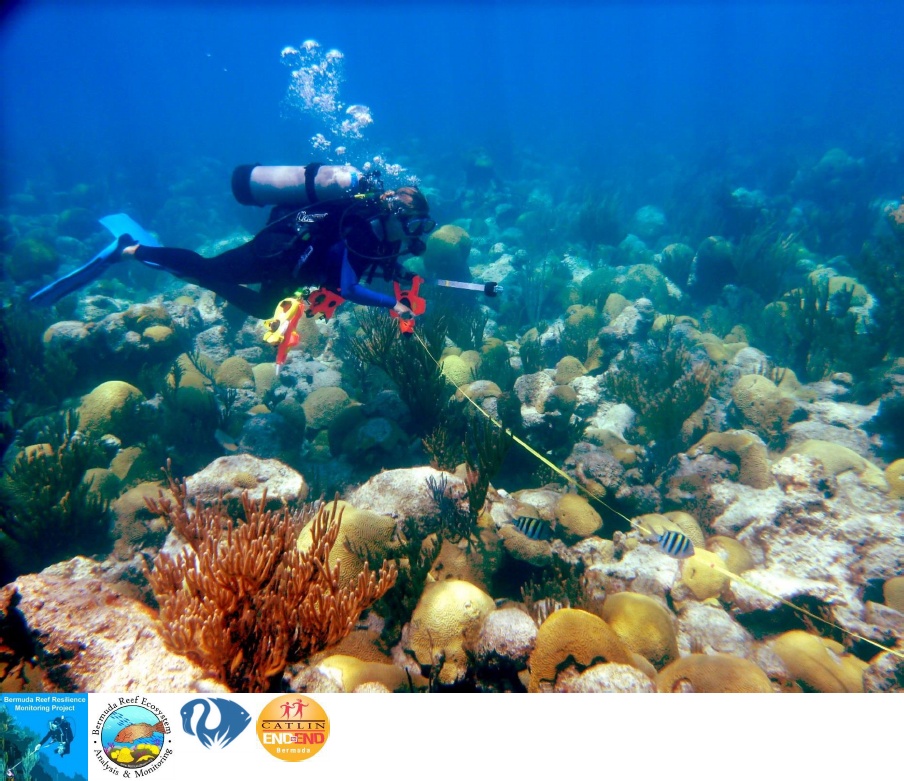Recent News
Seal Named “Northlands”, Set To Leave IslandMonday, March 20, 2023
The seal who was found on Clearwater Beach last month has officially been named Northlands — with Ruby Dill naming the seal after her granddaughter’s school — and Northlands will soon be traveling to the USA with the aim he continue his rehabilitation before being released back into the wild.
Plans Being Made To Send Seal To The USA
Saturday, March 18, 2023
The seal that was found in Bermuda last month — which is only a few weeks old — is “eating six pounds of fish a day, gaining weight, and generally doing well,” and plans are being made to send him to the Mystic Aquarium in Connecticut, with the same facility that accepted the seal that was found here in 2019, set to assist again.
BZS Trunk Island Cottage Receives Upgrade!
Friday, March 17, 2023
Thanks to the unwavering support of our donors, the Bermuda Zoological Society (BZS) has recently completed renovations to the cottage on Trunk Island – the BZS Living Classroom, the jewel in the crown of BZS education. The renovations have expanded the footprint of the current island classroom to encompass an expansion of the sheltered porches for outdoor learning while also providing storage areas for teaching tools.
Over 500 People Attend Lionfish Chowder Event
Friday, February 24, 2023
Chiko&T’s Restaurant won both the People’s Choice and Judge’s Awards at the BZS Lionfish Chowder competition, while The Cloud at the Waterfront, Wahoo’s Bistro, the Loren and the Spot Restaurant claimed second and third place honours.
HSBC Announced as Lead Sponsor of BZS Micro Forest Project
Monday, February 20, 2023
With the impacts of climate change being felt more and more each year, the need for reforestation projects has arguably never been more important and urgent. The Bermuda Zoological Society (BZS) today announced that HSBC has thrown its weight behind increasing Bermuda’s biodiversity, as Lead Sponsor of the BZS Micro Forest Project – Bermuda's Official Micro Forest Initiative.
About
GovernanceAbout Us
Newsletter
Latest News
Gift & Bookstore
Contact
General Inquiries
info@bzs.bm
Latest News
All the latest updates and news from the Bermuda Aquarium, Museum, and Zoo, one of Bermuda's leading visitor attractions!
Historically abundant predatory fish such as groupers and snappers remain at critically low numbers on Bermuda’s reefs based on international standards, according to a recently released report that monitored their status and trends by Bermudian scientist Dr Thaddeus Murdoch and his local team of research associates through the Bermuda Reef Ecosystem Assessment and Mapping [BREAM] Programme.
A spokesperson said, “As a consequence, coral-killing damselfish, which are eaten by groupers and snappers, have doubled in abundance within the lagoon since 2010, reducing the quality of reefs across an area bigger than the landmass of Bermuda.”
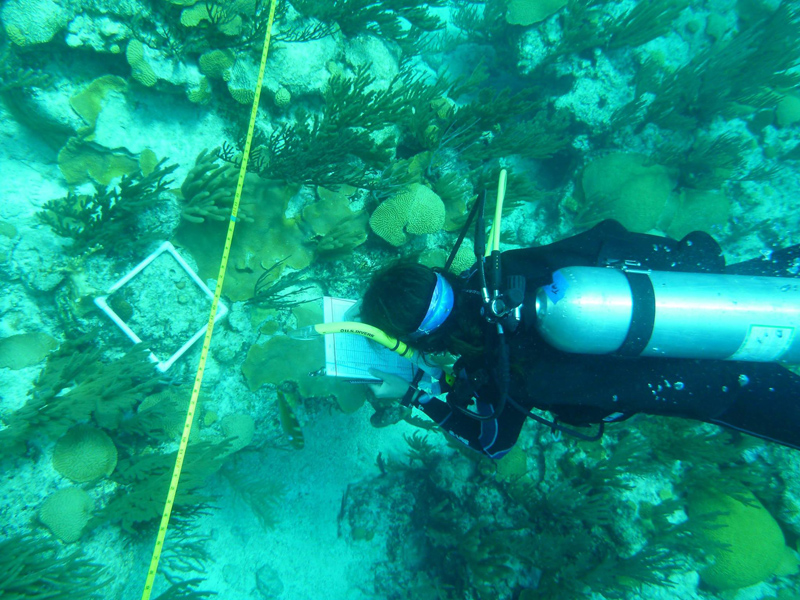
“In good news, however, hard corals so far remain at good levels across most reefs, and the protected parrotfish, important for keeping marine plants under control and for making beach sand, remain in high numbers.
“The report, Status and Trends of Bermuda Reefs and Fishes: 2016 Report Card, is available at BermudaBREAM.org.”
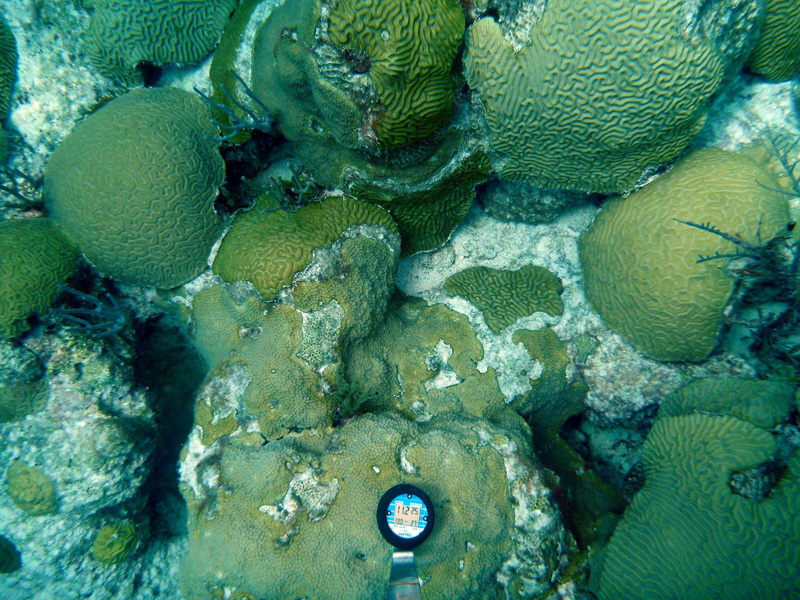
“The report describes baseline information collected from 2004 to 2011, and compared to updated data collected by resurveying reefs in 2015 and again in 2016 by Dr. Murdoch and his team of local and international scientists and graduate students. The BREAM team, as the Bermuda component of a cross-Caribbean monitoring programme of the Global Coral Reef Monitoring Network, measured the amount of corals, marine plants, plant-eating fishes and predatory fishes at 38 reefs located across all of Bermuda’s reef habitats.
“Funding and support for the research was provided by: XL Catlin, the Bermuda Zoological Society, Murdoch Marine Ltd and the Gosling family. Partner Re; the Overseas Territories Environmental Programme Fund at the UK Foreign & Commonwealth Office; the Bermuda Government; and the Stempel Foundation provided support for the baseline data collected in 2004 to 2011.”
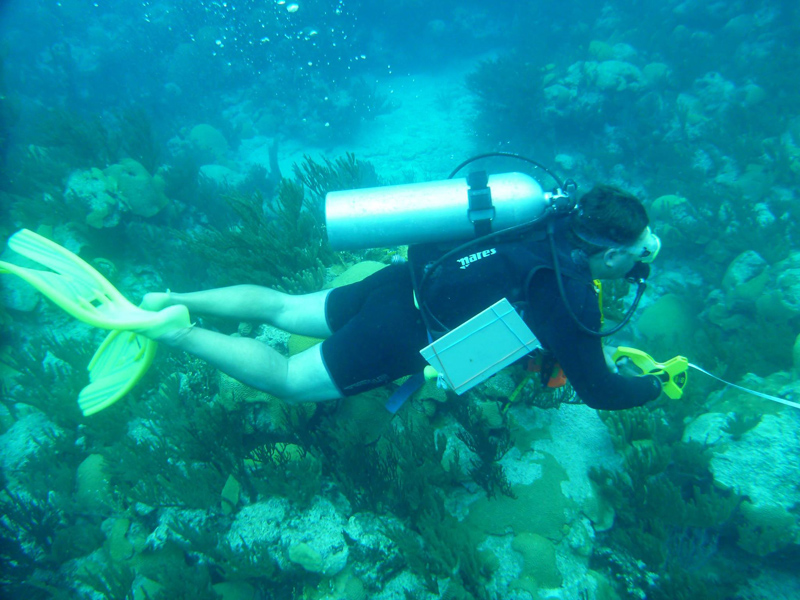
“The entire Bermuda reef platform was divided into four areas: the inner lagoon, the outer lagoon, the rim reef which surrounds the lagoon, and the 10-m forereef which is exposed to the open ocean. The entire platform was also considered as a unified whole.
“The BREAM report provides clear evidence that the cover of corals remains high at rim and foreereef locations, but is lower within the lagoon and particularly at nearshore reefs where marine plants are overly abundant and plant-eating fishes are scarce. Predatory and plant-eating fishes are critical to maintaining healthy reefs.”
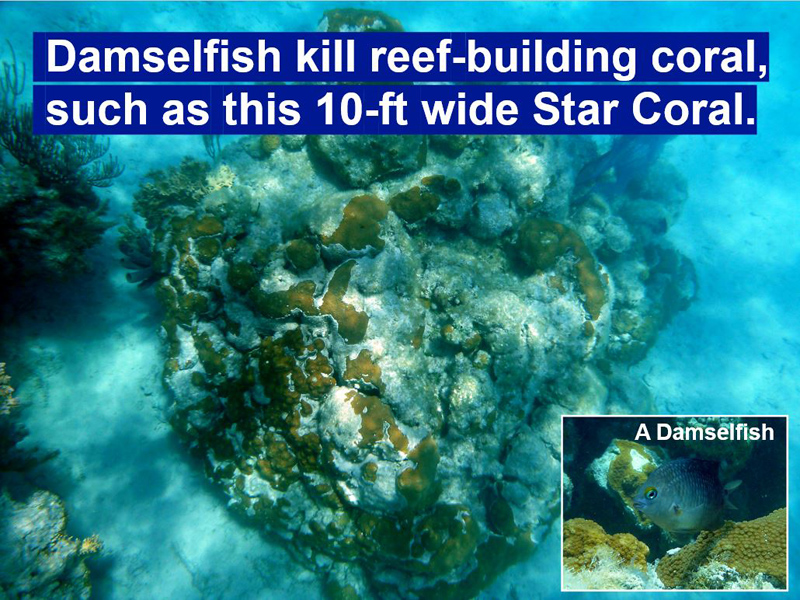
“Dr. Thad Murdoch believes the loss of predatory fishes remains a cause for alarm. He said: “Large predators like black grouper carry out important work by managing the numbers of small and large parrotfish that live on the reef. Smaller predatory fishes such as red hind, coney and grey snappers do so much more than just provide a source of food, as they keep coral-killing damselfish from increasing and causing damage to reefs.
“Bermuda’s coral reefs protect the Island, give us food, and provide exciting experiences for locals and tourists alike. However, our reefs, along with those across the world, face destruction from an increasingly acidic ocean and increasingly violent storms. Our reefs can face these serious threats, but only when predatory fishes like grouper and snapper, as well as plant-eating fish like parrotfish and surgeonfish, are abundant, marine seaweeds are sparse, and hard corals are healthy.”
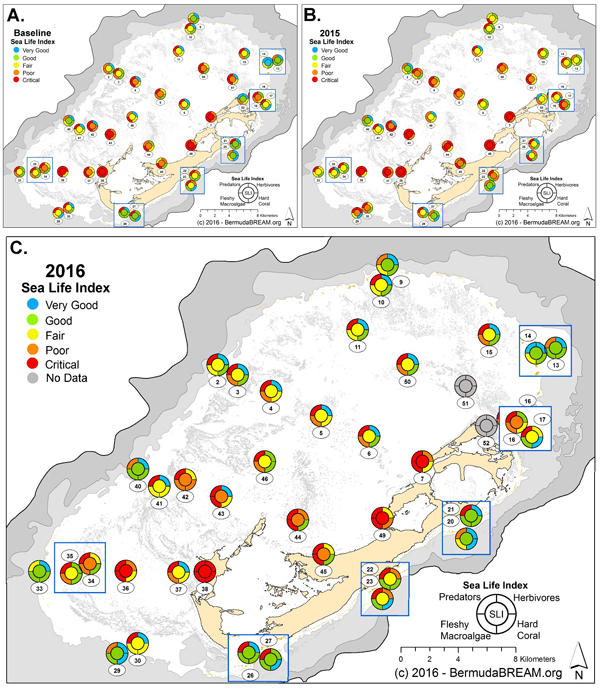
“Commercial and recreational fishing annually constitute only a very small portion of economic value generated by the services provided by Bermuda’s coral reefs to our society. However, we oversee the condition of our reefs as if they are primarily a fisheries concern. Reef condition is really a tourism and coastal protection issue, and should be managed accordingly.”
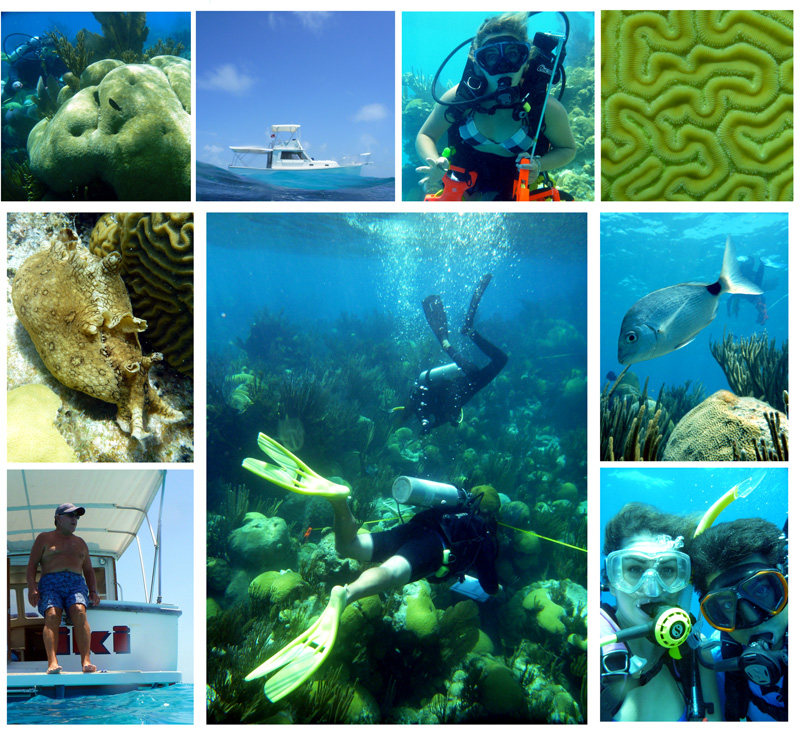
“According to Dr. Thad Murdoch, Bermuda can restore predatory fish populations by restricting the rate at which commercial and recreational fishers catch groupers and snappers, limiting the sale of key predatory fishes during their spawning season, expanding the seasonal prohibition and extent of protected spawning areas where necessary, and enhancing marine resource enforcement.
“Our centuries-old Bermuda reef fishery, and the multigenerational livelihoods that it provides, can only persist if we maintain the numbers of our breeding groupers and snappers. Marine protected areas are one way to invest in our reefs, and they provide a valuable return in the form of a constant supply of fish that leave the protected areas and move to aresas we we can catch and eat them.”
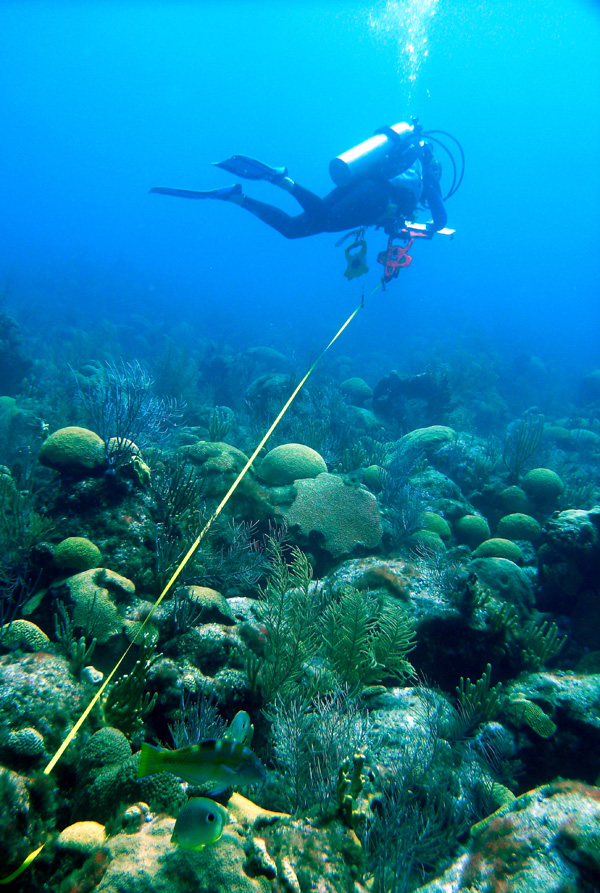
“In conclusion, Dr. Murdoch pointed out that if we ignore the critical loss of predatory fishes on our reefs, it is highly likely that our coral reefs will erode away. He said: “If we fail to protect our fish and coral reefs, then bigger waves will hit the shore, and our beaches will change from pink sand to rocky rubble.”
“Dr. Murdoch will provide public presentations of his research in the near future.
“To learn more about the BREAM programme, and to view the 2016 reef status and trends report in full, visit BermudaBREAM.org.”
The full Status and Trends of Bermuda Reefs and Fishes 2016 Report Card follows below [PDF here]:
